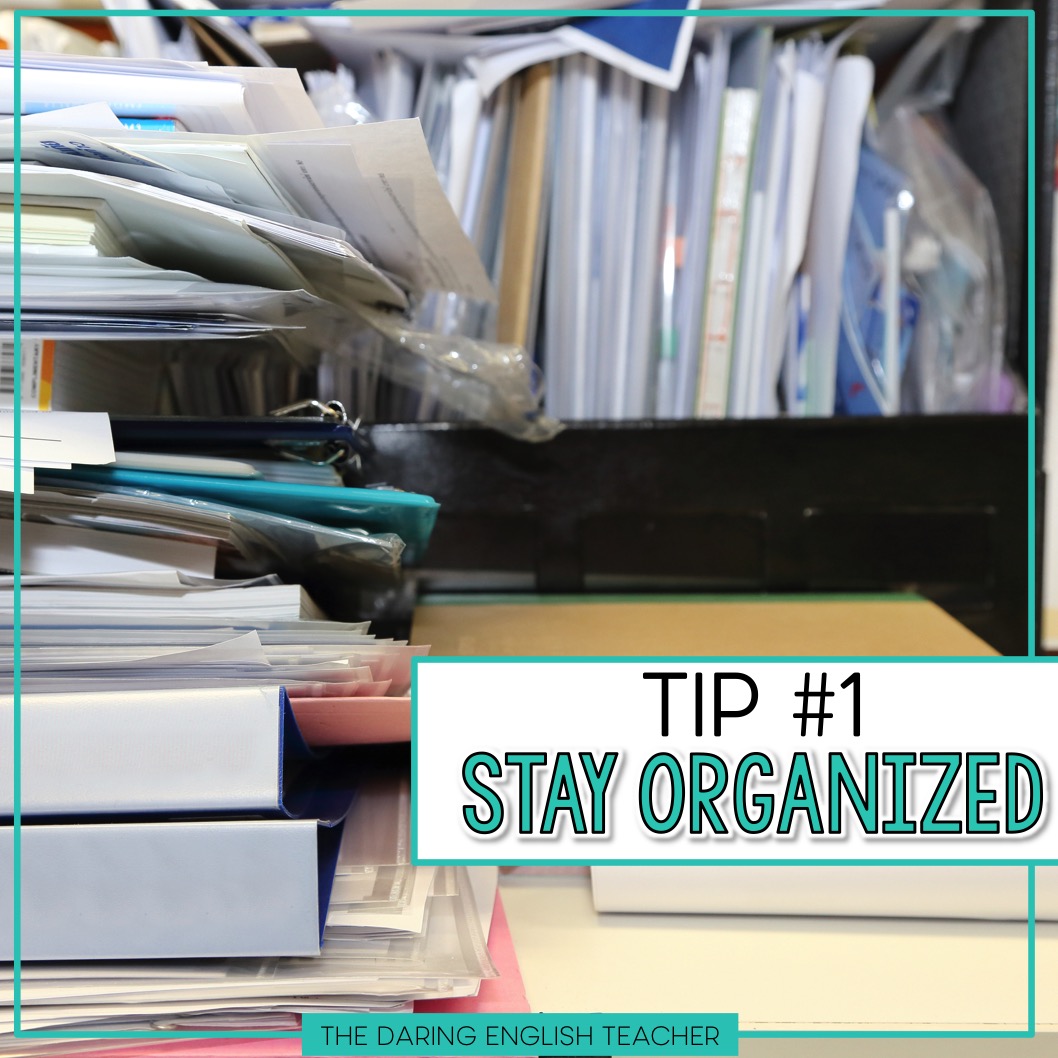The end of the school year is quickly approaching. In fact, many teachers started their summer countdowns weeks ago! As the days slowly tick by and as summer begins to creep (ever, so slowly, it seems) in, there are several things you can do now that will save your time and sanity at the end of the year!
1. Stay Organized
We’ve all heard of senioritis, but have you heard of summer-teacheritis? It’s real. Right now it is so easy to let papers pile up, assignments go ungraded for days, and let the outbox accumulate more papers than the US Post Office. However, if you manage to stay organized now, you will save so much time during that last week of school.
Organization Checklist
– grade any ungraded papers at by the end of the week
– pass back graded papers on Monday
– recycle (or file) papers that you will not use for the rest of the year
– keep a “to grade” and a “graded folder” on your desk, and try to empty them as often as possible
2. Don’t Grade Everything
Yes, students want to receive credit and acknowledgment for the work they’ve completed, but it is nearly impossible to grade every single assignment that students complete. Between homework, classwork, and assessments, you will drown in piles and piles of papers, which will only make your organization problem even worse.
Prioritize Your Assignments
– grade tests and quizzes
– grade essays and large projects
– spot check assignments
– offer participation grades for small assignments
– grade together as a class
3. Be Mindful of Assignment Due Dates
I was the worst at this my first couple years of teaching. I would assign my students a large essay and have it be due the day before I had to turn in my grades. I was up into the wee hours of the morning grading those essays. I didn’t just do this once either, I did it twice! Now I have fully learned my lesson. I have my students complete and turn in their large end-of-the-school-year assignments the week before grades are due. Not only does this give me more time to grade the assignments, but it also allows me to post grades earlier so that students can see what their final grade will most likely be.
If you are looking for fun and engaging end of the year activities to incorporate after your big projects are due, check out my End of the Year Activities Resource Packet!
4. Don’t Be Afraid to Plan a Study Day
As long as this isn’t a habit, do not feel guilty about planning a study day for your students. In fact, if this is something you rarely do, your students will be very grateful for the extra study time. I like to plan two study days a year; each one is toward the end of the semester. I give my students a study guide for the exam, turn on some classical music, and allow them to write Cornell notes for the test (I will even count these as a participation grade to get more student buy-in if necessary). While they work on their notes, I alternate between grading large assignments and walking throughout the room. Everyone wins!
5. Learn to Say “No”
I don’t know why, but the end of the school year always seems to be the time when teachers receive so many requests. As teachers, we need to be able to know what we can and cannot do in the time we have. It is okay to say no. It is okay to say no to a colleague or administrator who is asking you to fill an additional role. It is okay to say no to a parent who is just now asking for a list of all of the assignments his or her child missed that year. It is okay to say no to a student who is asking for additional assignments to bring up his/her grade. At the secondary level, students should be held accountable for their work throughout the entire semester, not just the last four days of the year.









4 Comments
I agree with "saying no." Sometimes I have to step back, think if I really have time (and really want to do whatever is being asked). If I can't do it well, I honestly say so. It's liberating.
This comment has been removed by the author.
Saying "no" is something I need to improve on… 🙂
-Lisa
Mrs. Spangler in the Middle
That is one I'm still working on, too.